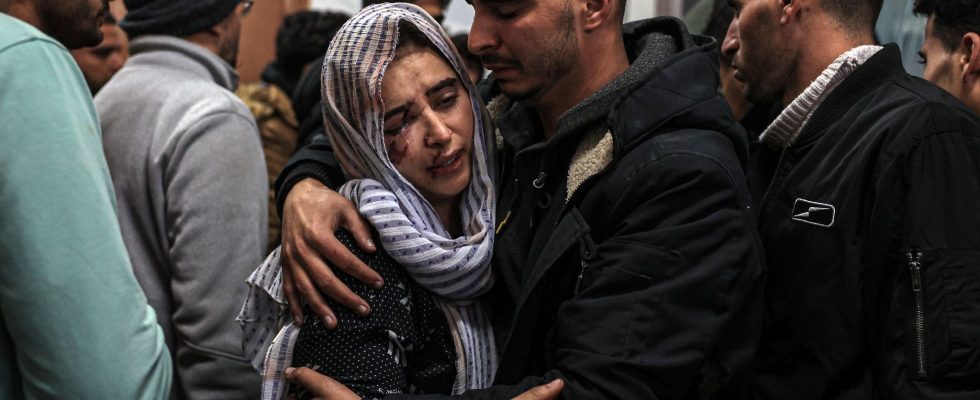Almost three months after the bloody attacks carried out by Hamas in Israel, bombings continue in the Gaza Strip. According to the UN, almost a quarter of the population is suffering from famine, while the Security Council tries to break the deadlock to pass a resolution to increase humanitarian aid.
Information to remember
⇒ UN Security Council vote postponed until this Friday
⇒ According to the Pentagon, more than 20 countries have joined the anti-Houthi coalition
⇒ 4 dead in an Israeli strike
Security Council vote postponed again
The UN Security Council on Thursday again postponed its vote on a resolution intended to improve humanitarian aid to Gaza, a largely weakened text which does not call for an immediate cessation of hostilities but now has the support of UNITED STATES. According to diplomatic sources, the vote is now scheduled for Friday, but the new text, the result of fierce negotiations under the threat of a new American veto, no longer resembles the version put on the table on Sunday by the United Arab Emirates.
The new draft resolution drafted Thursday, seen by AFP, calls for “urgent measures to immediately allow safe and unimpeded humanitarian access and also to create the conditions for a lasting cessation of hostilities.” The reference to an “urgent and lasting cessation of hostilities” present in the first text has disappeared, as has the less direct request in the following version for an “urgent suspension of hostilities”.
More than 20 countries now anti-Houthi members
More than 20 countries have now joined the US-led coalition aimed at defending maritime traffic in the Red Sea from attacks by Yemen’s Houthi rebels, the Pentagon said Thursday. A recent wave of attacks on ships in the Red Sea by rebels with drones and missiles threatens to disrupt global trade flows, with major shipping firms cutting off passage through the Bab el-Mandeb Strait.
Faced with this, Washington set up a new multinational maritime protection force at the beginning of the week. “We now have more than 20 nations committed to participating” in the coalition, Pentagon spokesperson Pat Ryder told reporters. Greece announced on Thursday that it was part of the coalition, alongside the first partner countries: France, the United Kingdom, Bahrain, Canada, Italy, the Netherlands, Norway, Spain, and the Seychelles .
A senior official from the Iran-backed group said this week that these attacks would only stop “if Israel stops its crimes and food, medicine and fuel reach the besieged population” of the Gaza Strip. in the context of the conflict between Israel and the Palestinian movement Hamas.
UN warns of risk of famine in Gaza
Residents of the Gaza Strip will face high risks of food insecurity, or even famine, over the next six weeks, says a report by the United Nations hunger monitoring system released Thursday in Rome.
The UN’s five-level food insecurity classification system, known as the IPC, predicts in its “most likely scenario” that by February 7 “the entire population of the of Gaza (around 2.2 million people)” will be in a situation of “hunger crisis, or worse”.
“This is the highest proportion of people facing high levels of food insecurity that the IPC system has ever determined for a given region or country,” the report said. The system rates hunger levels from one to five. The report warns that around half of the Gaza Strip’s population is expected to be in the “emergency” phase – which includes very high acute malnutrition and excess mortality – by February 7.
4 dead in Israeli strike on crossing point
The Palestinian Hamas government announced Thursday that four people had been killed in Israeli strikes on a crossing point between the Gaza Strip and Israel, including its director. Bassem Ghaben, director of the Karam Abou Salem crossing point (Kerem Shalom in Hebrew), was one of the victims along with three other people “when Israeli planes targeted the infrastructure”, indicated the administration in charge of the crossing points and the Hamas Ministry of Health.
Asked by AFP, the Israeli army and Cogat, an agency of the Israeli Ministry of Defense responsible for Palestinian civil affairs, did not react immediately. Israel approved last Friday the “temporary” delivery of part of the humanitarian aid for the Gaza Strip through its Kerem Shalom border crossing, thus opening a new supply route in addition to the main one, the Rafah point between Egypt and Gaza.
